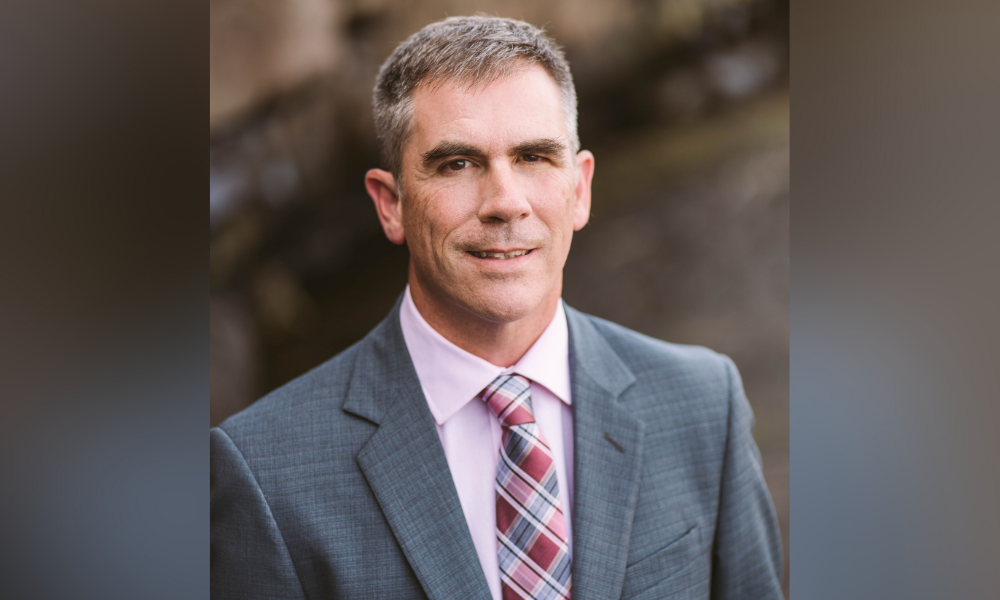His clients eventually won, but their graciousness in loss meant even more

Geoff Budden could easily see a recent victory for Mount Cashel Orphanage abuse survivors as the most noteworthy part of his decades-long fight.
Budden’s clients successfully appealed a trial decision at the Newfoundland and Labrador Court of Appeal in the summer of 2020. The appeal, which Budden & Associates worked with Supreme Advocacy LLP on, resulted in a decision finding the Archdiocese of St. John's vicariously liable for horrific abuse suffered by boys at the orphanage. The Supreme Court of Canada denied leave to the Archdiocese in early 2021, and the archdiocese filed for creditor protection in late 2021.
But when he is asked for a significant moment in the case that has dominated his practice, Budden does not mention the victory. He speaks about his clients' reactions when they lost at trial.
“We called over 50 men to tell them that we had lost the case,” says Budden. “That's really the worst news you could deliver to somebody. And you wouldn't be shocked if some of them were mad at you saying ‘you screwed up, thanks for nothing,’ those kinds of negative comments. But we got none of that. I can literally say that there was no negativity, nothing other than empathy for us.”
Budden attributes his client’s reaction to the wisdom they have acquired over their long lives (his clients were at the orphanage in the 1940s and 1950s).
“The lesson I took from it was really was one about their characters, and of how their life experience, as unfortunate as [it was] in many ways, it nevertheless delivered them to this place of real graciousness.”
Budden, who grew up in the east end of St. John's, where he still lives, began his career as a criminal and family lawyer in the early 90s. He shifted to representing survivors of abuse in the late 90s and has focused on this area ever since.
Although many observers would see his work for abuse survivors as heroic, Budden shies away from this characterization.
“It would be inaccurate to say I was some sort of heroic figure taking on these great forces. I never felt it was personal like that.”
Budden also credits trailblazing lawyers in Newfoundland who took on similar cases before he did, providing a model. Before Budden, former premier Danny Williams and Jack Harris represented several dozen Mount Cashel survivors.
“I learned largely by observing what those guys were doing and doing much the same thing myself.”
Budden first started representing abuse survivors in 1991 when a lawyer he dealt with on family law matters referred a client who had been in Mount Cashel. The client wanted to speak to somebody about starting a civil action, and the other lawyer couldn't represent him due to a conflict.
Budden observed the approach of Harris and Williams and says the trail they blazed meant “he did not experience any kind of hostility in the community or from the bar for taking on these institutions.”
Representing abuse survivors can take a toll on lawyers in what is often termed “secondary trauma.” But Budden says that is the nature of many other areas of law, such as criminal and family law.
He is also quick to point out that he does not see his clients as victims but as survivors.
“The cliches of a survivor as this profoundly damaged dysfunctional person is simply not true. A lot of our clients are extremely functional in certain areas. We've represented professionals, we've represented any number of quite accomplished people, but they've been damaged in other aspects of their life.”
Budden also shows empathy about his adversaries, acknowledging the devastating impact of his client’s victory on the institution, which recently filed for creditor protection.
“The Archdiocese is now attempting to come to terms with their overwhelming exposure because they lost the representative cases. They had a judgment of almost two and a half million dollars arising out of four claims. And there are probably 100 claims or more out there. So, they're looking at enormous financial damages.”
Now that the most significant case in his career is concluded, Budden is excited to focus on his inquiry work. He recently served as commission counsel on the Public Inquiry Respecting Ground Search and Rescue for Lost and Missing Persons. Since 2018, Budden has represented the Muskrat Falls Concerned Citizens Coalition at the Muskrat Falls Inquiry. He says his inquiry work has allowed him to question five former premieres of Newfoundland and Labrador and many other senior government and business leaders.
Like his work with survivors, this work has a significant public interest element, but the evidence is presented differently, which gives him less time to prepare.
“You don't necessarily get all the information in advance, so it's a real ‘think on your feet’ kind of experience. And it's also just fascinating.”










